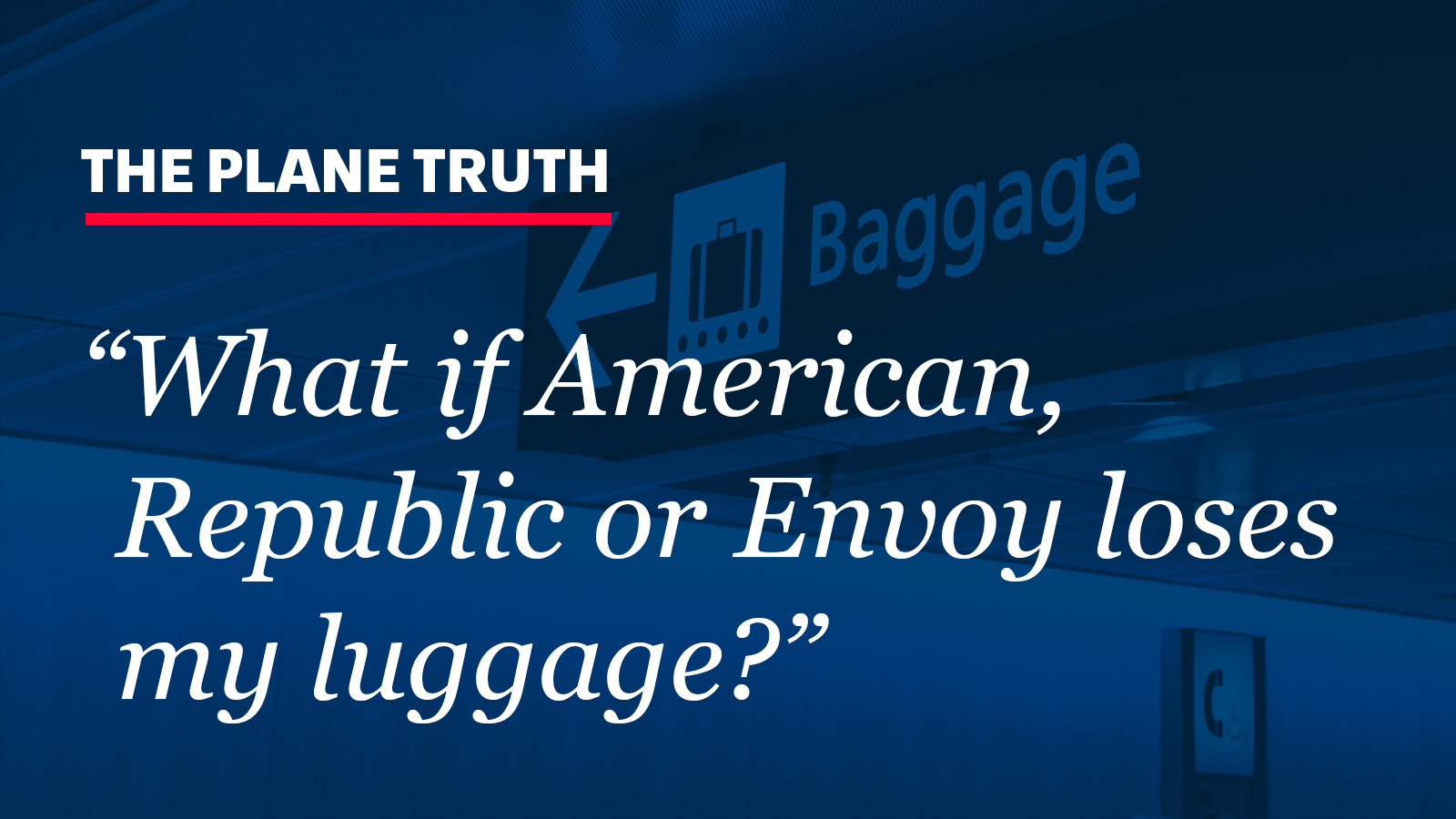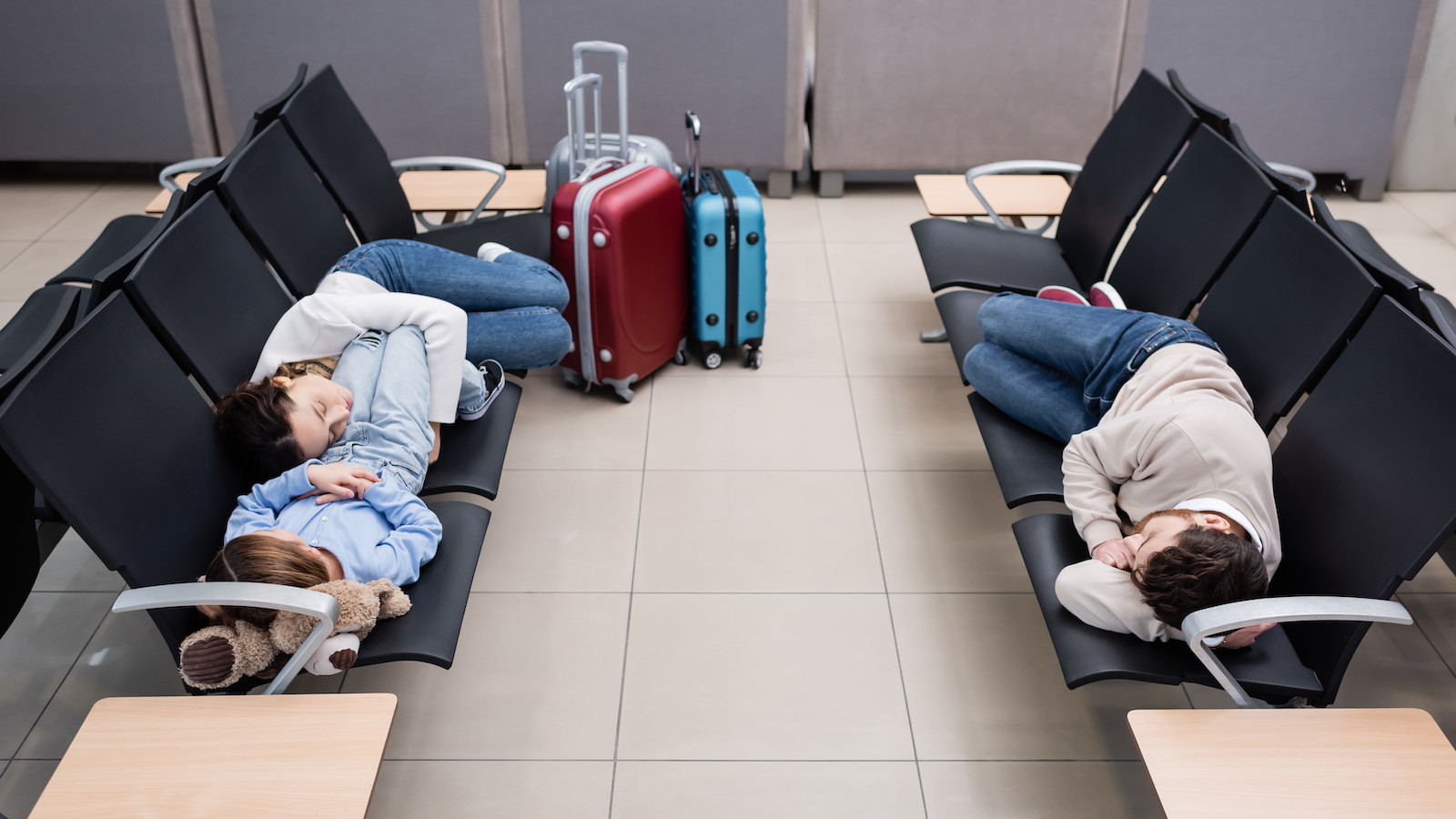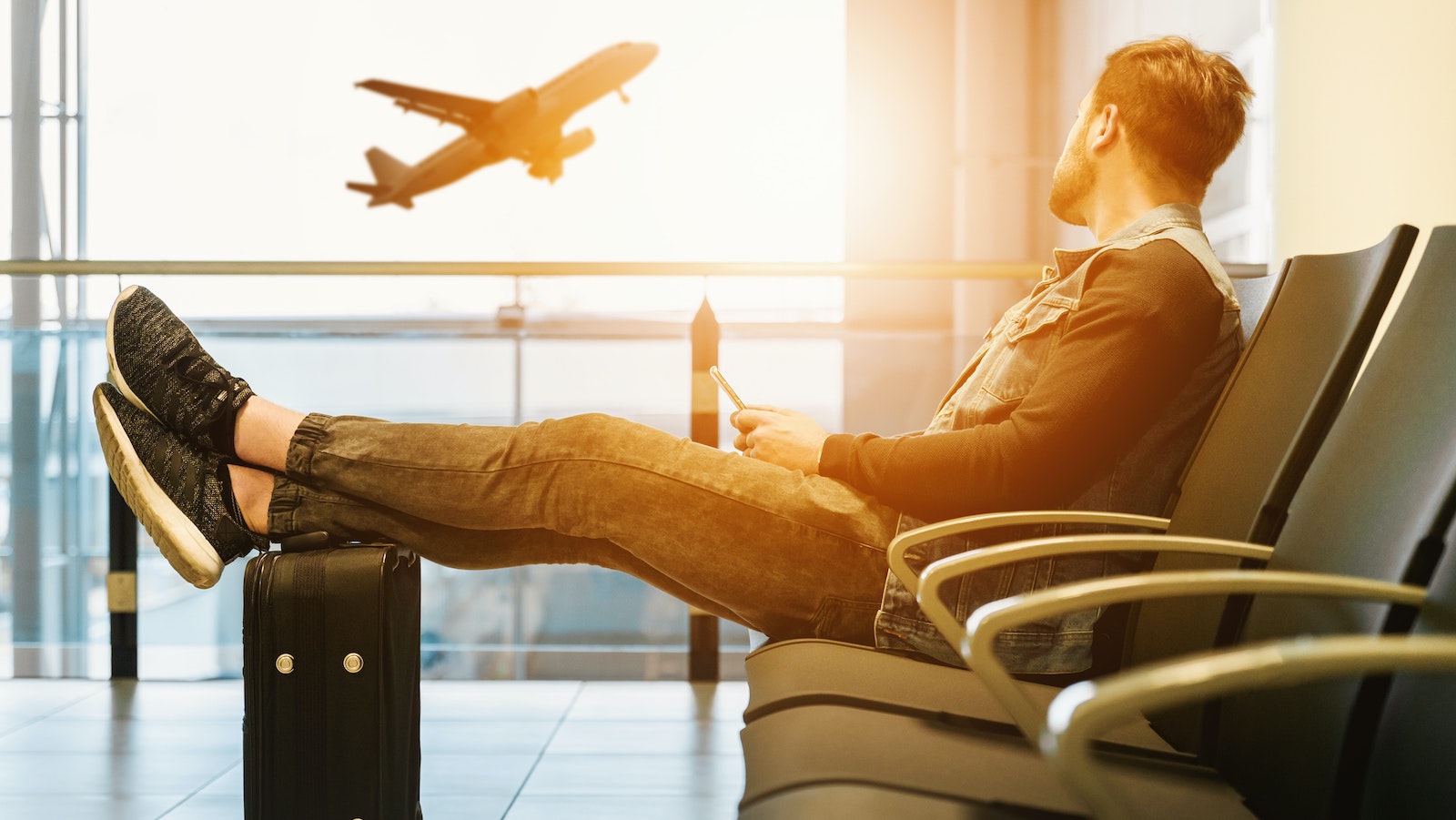
What if American, Republic or Envoy loses my luggage?
If you arrive at your destination but your luggage is nowhere to be found, you're entitled to compensation. Get the "Plane Truth" on what to know and watch out for.

Of the 17 largest operating airlines, your luggage is most likely to be lost or damaged on an American Airlines flight. Next worst are Republic Airways and Envoy Air.
The DOT says nearly 3 million bags were mishandled in 2022. And that only counts checked baggage on direct flights, not connecting ones. Mishandled means lost, seriously delayed, damaged or pilfered.
The Plane Truth: What to know if your luggage is missing or damaged, or something is missing from your suitcase
- If you wait until the same few last bags wind their way around the carousel over and over – and your luggage isn’t anywhere to be found – go immediately to the airline’s customer service counter and report it. File a missing luggage report with your claim check number, contact information, a description of the bag and any other information the form asks for.
- Airlines generally have tracking procedures to find your bag’s exact location. They may even have tracking as part of their phone app so you can track your bag. Ask about this.
- Even if that’s not the case, the airline may be able to determine whether your bag could have been routed improperly before departure. So your bag could be coming on the next flight.
- If you’re going to leave the airport without your luggage, ask for a refund for any checked baggage fees before you go. You paid for your bag to be transported responsibly, and that didn’t happen. You’re entitled to a refund. But be nice when you’re asking for this refund, which likely will be mailed to you. Get a copy of any paperwork associated with this request, and write down the name of the representative you deal with.
- If you file a claim for the missing property and leave the airport without your bag, most airlines will deliver your luggage to you – wherever you want – at no charge. If they don’t offer, ask before you leave.
- If your bag is delayed overnight, most airlines set guidelines that allow their employees to reimburse you for some emergency expenses, such as toiletries or pajamas or snacks you packed. Ask whether they automatically provide a stipend upfront or whether you need to submit expenses later.
- If your bag is missing for a while, you’re probably going to buy some replacement items, especially if you’re away from home. Keep track of your expenses – with a running list and receipts. You’re entitled to reimbursement, even if your luggage shows up later.
- If your luggage does surface later, inspect it quickly and thoroughly. If anything is damaged, take photos. If anything is missing, note it. If your wheel or handle is damaged, take a photo. You will need to file a claim with the airline.
- Know that travelers are entitled to up to $3,800 per passenger for domestic flights. Airlines can certainly reimburse you more, but they don’t have to. (This $3,800 limit doesn’t apply to assistive devices such as wheelchairs, prescriptions, CPAP machines and hearing aids.)
- For international flights (most of them,) baggage issues fall under a treaty called the Montreal Convention. The amount of reimbursement can be limited to what’s called 1,288 Special Drawing Rights, or about $1,736 currently. Airlines can choose higher reimbursement.
- Airlines can decline responsibility for certain types of items, such as electronics, money or fragile items. Anything the airline won’t cover should be cited in its contract of carriage.
- Know that an airline may consider your bag to be officially lost between five days and two weeks after you landed. This timeframe can change depending on how many connections there were, whether it involved an international carrier or other factors.
What to do if you aren’t satisfied with how the airlines have handled your problem
- If your issues aren’t resolved to your satisfaction, file a complaint with the DOT.
For the next time, travelers should take steps to protect themselves
- Put a tracking device, such as an Apple AirTag or Samsung Smart Tag, in your luggage to locate it with your phone.
- Take a photo of your suitcase to help the airline find it later. Also take photos of your packed suitcase (open), and take photos of anything expensive inside. If there are model numbers of serial numbers for any items, write those down or take photos of them.
- Don’t arrive at the airport at the last minute. This increases the chance of your bag not getting processed properly. An arrival after the check-in deadline could mean the airline may not be liable if your bag is lost.
- Consider buying extra insurance for any expensive items that you have to check.
PIRG: Giving passengers the Plane Truth and working for Flyers’ Rights
PIRG for years has been standing up for passengers’ rights by advocating for stronger consumer protections, exposing practices that harm consumers, holding regulators accountable for enforcement and offering travelers tips and information about their rights.

The Plane Truth Part 2

What to know about your airline rights, and how to file a complaint
Topics
Authors
Teresa Murray
Consumer Watchdog, U.S. PIRG Education Fund
Teresa directs the Consumer Watchdog office, which looks out for consumers’ health, safety and financial security. Previously, she worked as a journalist covering consumer issues and personal finance for two decades for Ohio’s largest daily newspaper. She received dozens of state and national journalism awards, including Best Columnist in Ohio, a National Headliner Award for coverage of the 2008-09 financial crisis, and a journalism public service award for exposing improper billing practices by Verizon that affected 15 million customers nationwide. Teresa and her husband live in Greater Cleveland and have two sons. She enjoys biking, house projects and music, and serves on her church missions team and stewardship board.
Find Out More

Food for Thought 2024

Is Alexa always listening? How to protect your data from Amazon

Safe At Home in 2024?
